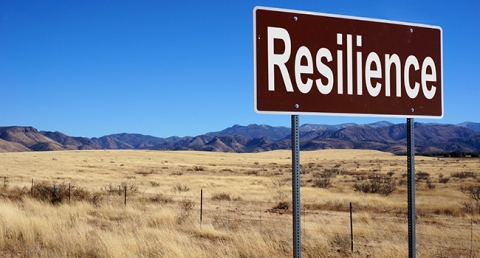
Everyone has experienced weariness, particularly during this on-going COVID-19 pandemic. Whether weariness is due to COVID-related loss of life, family or childcare related stress, health, employment, relationships, or even stress from being in person again, resilience of character is good for your mental health as well as your heart.
“I don’t think any of us thought we’d be dealing with the stresses of the COVID-19 pandemic for this length of time, but it is important not to get discouraged and to use tools to stay positive, even in hard times,” said Nancy K. Sweitzer, MD, PhD, director of the Sarver Heart Center, professor of medicine and chief of cardiology at University of Arizona College of Medicine – Tucson. “Studies repeatedly show that a person who responds to adversity with resiliency has less cardiovascular disease than a person who focuses on negativity. It’s strong evidence of the brain-heart connection,” added Dr. Sweitzer.
Where does resiliency come from?
"Resilience can be likened to your ability to have life bump into you without knocking you down. Many people can feel exhausted and overwhelmed mentally, emotionally, and physically. Prolonged stress, this takes a toll on health risk, affecting your heart, your immune system, and your metabolism. When you are in a state of physical and mental balance, you are less likely to be knocked down -- this means that we can cultivate resilience by supporting healthy diet, activity, sleep, and stress management," said Michael A. Grandner, PhD, associate professor of psychiatry and Sarver Heart Center member who is a clinical psychologist at College of Medicine – Tucson.
Many of the recommendations for heart health apply to health in general, including mental health and what’s needed to build resiliency:
- Get enough sleep – review Dr. Grandner's article, “Sleep to Your Heart’s Content.”
- Eat nutritious foods – get as close to possible to a plant-based diet.
- Connect with social networks – use them, whether in person (something that can happen again, especially for vaccinated people) or connect electronically.
- Practice mindfulness – recognize stresses and draw on past responses that led to success. Find reasons to be grateful.
- Find your own stress-relieving activities – getting out and experiencing nature, getting away in a good book, exercising, hobbies – whatever works for you!
More tips are covered in “10 Things You Can Do Today to Prevent/Reverse Heart Disease.”

